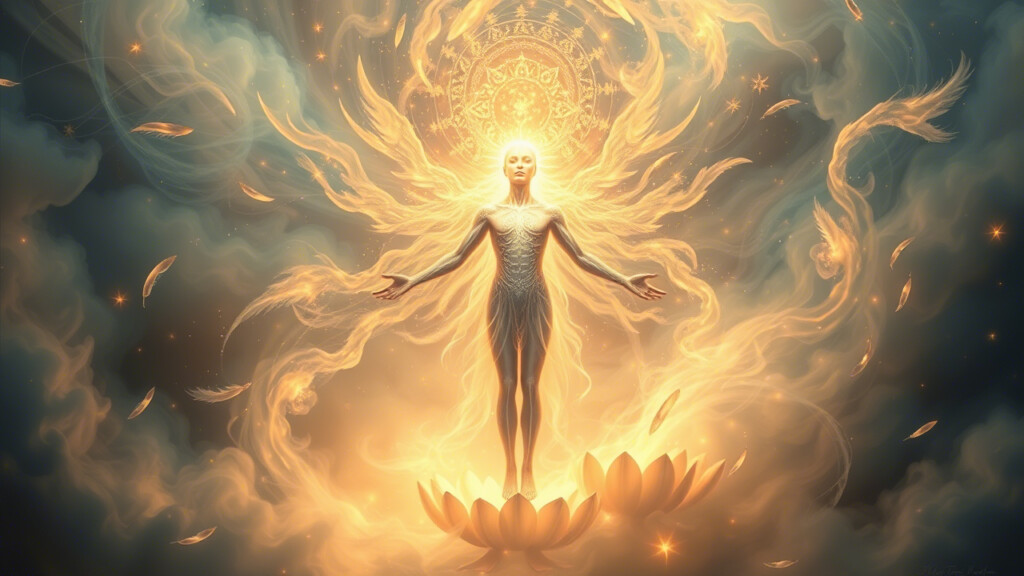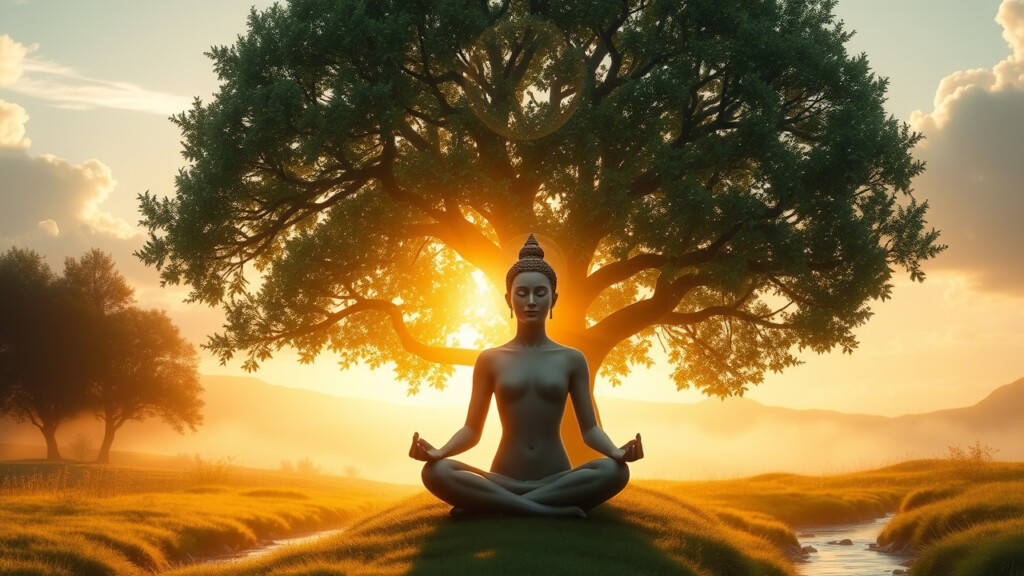Since the dawn of time, humans have never stopped evolving—from simple beings to complex entities with profound consciousness. But what about the soul? Does it also undergo an evolutionary journey like our physical existence? If the soul is unchanging, why do differences exist among people living on the same planet?

Does the Soul Exist? A Buddhist Perspective
A falling leaf is not the end. It returns to the earth, merges with its origins, and one day, takes form in a new life. Humans are the same—when the body decays, the soul does not disappear but continues the cycle of reincarnation, an endless rotation of birth and death, governed by the law of karma.
Buddhism does not see life as a destination but as a continuous flow. In the Mahāparinibbāna Sutta, the Buddha teaches:
“All beings are governed by karma. They are the owners of their karma, the heirs of their karma, born from karma, bound by karma, and take karma as their refuge.”
Every action, thought, and word in this life creates the causes and conditions for the next. If we live today with anger and hatred, we may continue to reincarnate in suffering. If we cultivate compassion and wisdom, we draw closer to a higher state of existence, free from the bondage of samsara.
This principle is also emphasized in the Sutra on the Cause and Effect of Three Lifetimes:
“To know the causes of your past life, look at your present circumstances.
To know your future destiny, look at your present actions.”
This means we are not merely products of the past but also the architects of what is yet to come. The soul carries the imprints of past lives, learning from mistakes, maturing through experiences, and evolving with each reincarnation.
But is reincarnation merely an abstract concept in scripture, or does it leave tangible traces in reality?
Professor Ian Stevenson from the University of Virginia spent decades studying and documenting over 3,000 cases of children who recalled past lives. These children did not just share vague memories but accurately described their previous homes, families, and even the cause of death in their past existence.
One of the most famous cases is that of Shanti Devi, an Indian girl born in 1926. From the moment she could speak, she repeatedly described her former home in Mathura—a city far from where she was living. When researchers investigated, they found that her descriptions matched the life of a woman who had passed away years earlier. She even recognized her past-life husband, whom she had never met before.
These cases are not just isolated anecdotes but compelling evidence suggesting that reincarnation may not be merely a belief, but a reality that science has yet to fully explain. I remember being so fascinated by Shanti Devi’s story that I spent an entire week researching similar cases, wondering if I, too, had lived a past life that I could not recall.
So if the soul truly exists and reincarnates through multiple lifetimes, the question arises: Can it evolve and change, just as humans do?
Can the Soul Evolve Like Humans?
A newborn child knows nothing but learns, grows, and changes over time. A seed, too—at first just a tiny sprout—eventually weathers storms to become a towering tree. If the human body can change, and the mind can develop, then the soul—the deepest spiritual essence—must also be capable of evolving.
Buddhism affirms that the soul is not static; it is like a flowing river—constantly moving, constantly changing, shaped by the karma it carries.
The Evolution of the Soul in Three Stages:
🔹 The Unawakened Soul:
Still dominated by desire, anger, and ignorance (greed, hatred, and delusion), it acts on instinct and accumulates negative karma, leading to rebirth in lower realms such as the animal world, hungry ghost realm, or a human life filled with suffering.
🔹 The Learning Soul:
Begins to understand karma, practices kindness and wisdom, experiences deeper lessons, develops compassion, and reincarnates into more favorable circumstances to continue the journey toward enlightenment.
🔹 The Awakened Soul:
Reaches a state of spiritual awareness, no longer bound by desire, anger, or ignorance, and progresses toward Nirvana—the ultimate liberation from the cycle of birth and death.
Signs That the Soul is Evolving:
🔹 Individuals Who Recall Past Lives:
Some people are born with extraordinary talents or clear memories of previous incarnations, suggesting a soul that has undergone multiple lifetimes of experience.
🔹 The Difference Between Spiritual Masters and Ordinary People:
Great figures such as the Buddha or the Dalai Lama possess profound wisdom and infinite compassion—signs of highly evolved souls.
🔹 The Impact of Meditation on Consciousness:
A Harvard study (2018) found that meditation can physically alter brain structures, leading to greater inner peace. If the mind can evolve through practice, then the soul, too, can transform toward a higher state of being.

Some believe that the soul will continue evolving indefinitely, but Buddhism teaches that there is an endpoint: Nirvana. Nirvana is not a place but a state of ultimate liberation. When a soul fully awakens and is no longer bound by birth and death, it attains eternal peace.
If the soul truly evolves, what path will you choose to guide it toward a better future?
❓ FAQ
Why do only some people remember past lives, while others do not?
Why do good people suffer while bad people thrive?
When someone dies, do they realize they are dead?
📌 References:
📖 Mahāparinibbāna Sutta – The Great Discourse on the Final Nirvana
📖 Twenty Cases Suggestive of Reincarnation – Ian Stevenson, 1974
📖 Meditation and the Brain – Harvard Medical School, 2018
If the soul evolves, how will you shape its journey?
